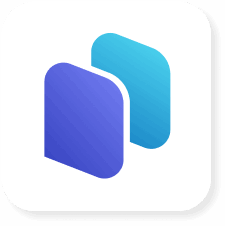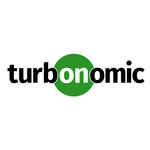Description

DeskDay

IBM Turbonomic
Comprehensive Overview: DeskDay vs IBM Turbonomic
DeskDay and IBM Turbonomic serve distinct purposes within the realm of IT operations and management, and understanding their primary functions, target markets, market share, user base, and differentiating factors is crucial for evaluating their roles in the industry.
a) Primary Functions and Target Markets
DeskDay: DeskDay is primarily a helpdesk and IT service management (ITSM) solution aimed at streamlining and enhancing the delivery of IT services within organizations. Its core functions include ticket management, incident resolution, knowledge base creation, and multi-channel support integration. DeskDay is targeted at organizations of various sizes seeking to improve their internal IT support processes. Typical users include IT departments in mid-to-large enterprises, IT service providers, and industries that require robust IT support infrastructures.
IBM Turbonomic: IBM Turbonomic is an application resource management and performance optimization platform. Its primary functions are centered around automating the management of infrastructure resources to ensure application performance and compliance. It offers capabilities such as workload optimization, real-time analytics, and dynamic resource allocation to help businesses optimize their hybrid and multi-cloud environments. The target market for Turbonomic includes enterprise-level organizations, particularly those managing complex cloud-based and virtualized environments, such as IT operations, DevOps, and cloud service providers.
b) Market Share and User Base
DeskDay: As of the latest data available, DeskDay is considered a competitive player in the ITSM market with a focus on delivering cost-effective and user-friendly solutions. Its market share tends to be smaller compared to established giants like ServiceNow or BMC Remedy. DeskDay's user base is relatively niche, appealing to organizations that prioritize a simple and straightforward IT service management solution without the need for extensive customization.
IBM Turbonomic: Turbonomic, as part of IBM's portfolio, benefits from IBM's broad reach and reputation in the enterprise IT sector. It has a significant market presence in the application performance management and cloud optimization segments. While the exact market share can fluctuate with industry trends and IBM's strategic focus, Turbonomic holds a strong position among enterprises that require sophisticated and automated resource management capabilities. Its user base often includes large enterprises and businesses at the forefront of digital transformation efforts.
c) Key Differentiating Factors
-
Functionality and Scope:
- DeskDay focuses primarily on IT service management and helpdesk functions, providing tools for incident tracking, user communication, and support efficiency.
- IBM Turbonomic is centered on resource management and performance optimization, using AI-driven automation to balance application demands with available infrastructure resources.
-
Target Audience:
- DeskDay caters to IT departments and service providers seeking a focused ITSM solution.
- IBM Turbonomic appeals to organizations that need to manage complex, hybrid IT environments and are looking for ways to automate and optimize application performance.
-
Integration and Ecosystem:
- DeskDay offers integration options with various channels and platforms to enhance service desk efficiency.
- Turbonomic is designed to integrate with a multitude of cloud platforms, virtualization technologies, and enterprise systems, aligning with IBM’s broader cloud and AI strategy.
-
Technology and Innovation:
- DeskDay leverages simplicity and ease of use as its main technological advantage.
- IBM Turbonomic emphasizes AI-driven automation and real-time analytics, differentiating itself through advanced technological capabilities that adapt to dynamic cloud environments.
In summary, while both DeskDay and IBM Turbonomic operate within IT service and management domains, they address different needs and markets. DeskDay provides essential ITSM capabilities suitable for various organizational sizes, whereas Turbonomic offers sophisticated optimization solutions for complex, enterprise cloud environments.
Contact Info

Year founded :
2022
Not Available
Not Available
United States
http://www.linkedin.com/company/deskday

Year founded :
2010
+1 844-438-8872
Not Available
United States
http://www.linkedin.com/company/turbonomic
Feature Similarity Breakdown: DeskDay, IBM Turbonomic
As of my knowledge cutoff date in October 2023, DeskDay and IBM Turbonomic are both platforms aimed at optimizing and managing IT resources, but they cater to somewhat different problem spaces and user requirements. Below is a comparative breakdown of their feature similarities and differences:
a) Core Features in Common
-
Resource Management:
- Both DeskDay and IBM Turbonomic offer tools for managing and optimizing IT resources. They focus on ensuring that applications and services run smoothly by allocating and balancing resources efficiently.
-
Performance Optimization:
- Both platforms provide mechanisms to optimize performance. In the case of IBM Turbonomic, this might involve real-time performance analytics and dynamic resource management, while DeskDay would focus on workflow and operational improvements to enhance performance.
-
Integration Capabilities:
- Both products offer integration with various other IT service management tools, cloud services, and existing IT infrastructure to provide comprehensive insights and to facilitate smoother operations.
-
Scalability:
- Both platforms support functionality that scales from small to large enterprises, capable of handling complex IT environments.
b) User Interface Comparison
-
DeskDay:
- The UI of DeskDay is typically designed to be intuitive for users who are involved in managing operational workflows and business processes. It tends to focus on ease of use, with a clean layout that is tailored for quick navigation and task completion.
- DeskDay might offer customizable dashboards that allow users to tailor their view according to operational KPIs and metrics relevant to their role.
-
IBM Turbonomic:
- IBM Turbonomic often offers a more detailed and technical UI, as it is typically used by IT professionals who need in-depth visibility into system performance and resource utilization. The UI is built to handle complex data and provide granular controls for managing IT infrastructure.
- Turbonomic provides highly graphical representations of infrastructure health and resource allocation, offering tools that cater to IT operations with more technical depth.
c) Unique Features
-
DeskDay:
- DeskDay may focus more on features aimed at enhancing team productivity and workflow management outside of IT resource allocation. This includes time tracking, project management, and communication tools that are tailored to improve overall business operations.
-
IBM Turbonomic:
- IBM Turbonomic excels in granular resource optimization and automation based on AI-driven analysis. It offers automated decision-making capabilities for balancing performance with cost across hybrid cloud environments, which are unique in their depth and technological leverage.
- Turbonomic provides specific features such as the ability to automatically execute resource resizing in real-time based on application needs and policy constraints. It’s known for providing actionable insights that directly translate into automated operations.
Conclusion
Both DeskDay and IBM Turbonomic have powerful capabilities in resource and performance management, albeit from different angles. DeskDay emphasizes broader operational improvements and workflow management, making it suitable for improving overall business productivity. On the other hand, IBM Turbonomic is deeply oriented towards IT infrastructure optimization and cloud cost management, with advanced automated resource management features designed for IT professionals.
Features

Not Available

Not Available
Best Fit Use Cases: DeskDay, IBM Turbonomic
When determining the best fit use cases for DeskDay and IBM Turbonomic, it's essential to consider the unique capabilities and strengths of each product, as well as the specific needs of different businesses or projects. Here's a breakdown of the ideal scenarios for each:
a) DeskDay
Best Fit Use Cases:
-
Small to Medium-Sized Enterprises (SMEs): DeskDay is often tailored for small to medium-sized businesses looking for straightforward, efficient solutions to manage office resources, scheduling, and productivity tracking without the complexity of enterprise-focused tools.
-
Remote and Hybrid Work Environments: Companies that offer flexible work arrangements can benefit from DeskDay’s ability to streamline remote team management and ensure efficient desk utilization in hybrid setups.
-
Professional Services and Creative Agencies: These industries often require a flexible platform to manage dynamic project timelines and team allocations, making DeskDay an ideal choice for monitoring productivity and managing resources.
-
Startups and Growing Businesses: Startups with evolving needs may prefer DeskDay due to its simplicity, scalability, and cost-effectiveness, which support rapid changes in organizational structure and team dynamics.
b) IBM Turbonomic
Preferred Use Cases:
-
Large Enterprises with Complex IT Infrastructures: IBM Turbonomic excels in large-scale environments where optimizing application resources dynamically across multi-cloud environments is critical.
-
Industries with High Regulatory and Compliance Needs: Sectors like finance, healthcare, and telecommunications benefit from Turbonomic’s ability to ensure compliance and availability through intelligent resource management and operational scalability.
-
Cloud-Native and Virtual Environments: Organizations leveraging extensive virtualization or transitioning to cloud-native applications find Turbonomic ideal for maintaining performance and cost-efficiency by continuously optimizing resources in real-time.
-
Data-Centric Companies: Businesses with a significant focus on big data and analytics can harness Turbonomic to optimize data processing and storage resources, ensuring that workloads remain efficient and agile.
d) Industry Verticals and Company Sizes
DeskDay:
- Industry Verticals: Primarily caters to creative industries, marketing agencies, and professional services due to its focus on project management and team collaboration.
- Company Sizes: Targets small to medium-sized companies, offering features that prioritize user-friendliness and rapid deployment.
IBM Turbonomic:
- Industry Verticals: Serves industries like finance, healthcare, government, and large-scale enterprises where IT resource optimization and compliance are critical.
- Company Sizes: Best suited for large enterprises and global organizations with complex IT ecosystems that require detailed insights and automated actions to maintain optimal performance across diverse environments.
In summary, DeskDay tends to be a great fit for SMEs and agile startups needing efficient team management tools, while IBM Turbonomic is more aligned with large enterprises requiring sophisticated resource optimization across extensive IT landscapes.
Pricing

Pricing Not Available

Pricing Not Available
Metrics History
Metrics History
Comparing teamSize across companies
Conclusion & Final Verdict: DeskDay vs IBM Turbonomic
To determine the best product between DeskDay and IBM Turbonomic, it's important to consider the strengths, weaknesses, target audience, and specific use cases for each. Below is an analysis that may help reach a conclusion:
Conclusion and Final Verdict
a) Best Overall Value:
The best overall value between DeskDay and IBM Turbonomic depends on the specific needs and priorities of an organization. DeskDay is ideal for companies seeking comprehensive digital workplace management with a focus on productivity and collaboration tools. Conversely, IBM Turbonomic excels in providing advanced AI-driven application resource management to optimize performance across hybrid and multi-cloud environments.
- DeskDay: Offers value for organizations looking for enhanced team collaboration, project management, and streamlined workplace operations.
- IBM Turbonomic: Provides value through its robust resource management capabilities, driving cost efficiencies and performance boost in complex IT environments.
b) Pros and Cons of Each Product:
-
DeskDay:
- Pros:
- User-friendly interface with intuitive collaboration and workflow features.
- Helps boost productivity and streamline communication.
- Suitable for a wide variety of industries due to its flexible features.
- Cons:
- May lack specialized IT resource management capabilities.
- Integration challenges with highly specialized or legacy systems.
- Pros:
-
IBM Turbonomic:
- Pros:
- Advanced AI-driven resource optimization for cloud and on-prem environments.
- Enhances application performance and reduces cloud costs.
- Broad integration capabilities with various cloud platforms and services.
- Cons:
- Can be complex to implement and configure, especially for smaller businesses.
- Potentially high cost, suitable for larger enterprises with significant IT infrastructures.
- Pros:
c) Specific Recommendations:
-
For companies prioritizing team collaboration and workplace productivity: DeskDay is a more suitable option. It provides tools to enhance communication and streamline workflows, making it ideal for organizations whose primary focus is on improving team efficiency.
-
For IT teams focusing on optimizing resource utilization and managing complex cloud environments: IBM Turbonomic offers a substantial advantage. Its AI-driven approach to managing applications' performance and costs is valuable in tech-intensive environments, particularly those using hybrid or multi-cloud architectures.
-
Consider the scale and complexity of your operations: Smaller companies with straightforward needs might prefer DeskDay for its simplicity and core offerings, whereas larger enterprises with complex IT infrastructure could benefit more from the extensive capabilities of IBM Turbonomic.
Ultimately, organizations should perform a comprehensive assessment of their requirements, considering factors such as budget, existing infrastructure, and future scalability to decide which product aligns best with their strategic goals.
Add to compare
Add similar companies



